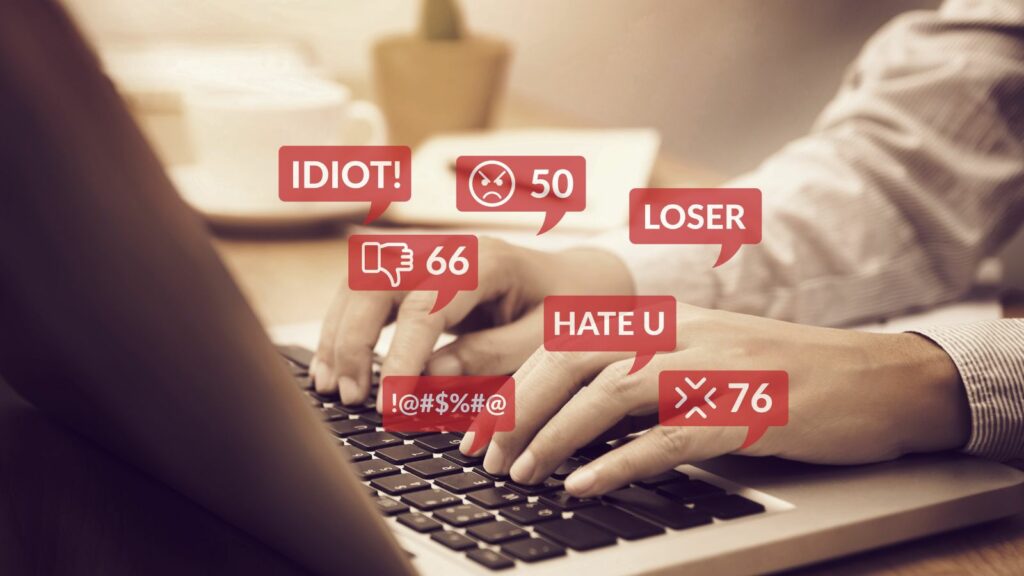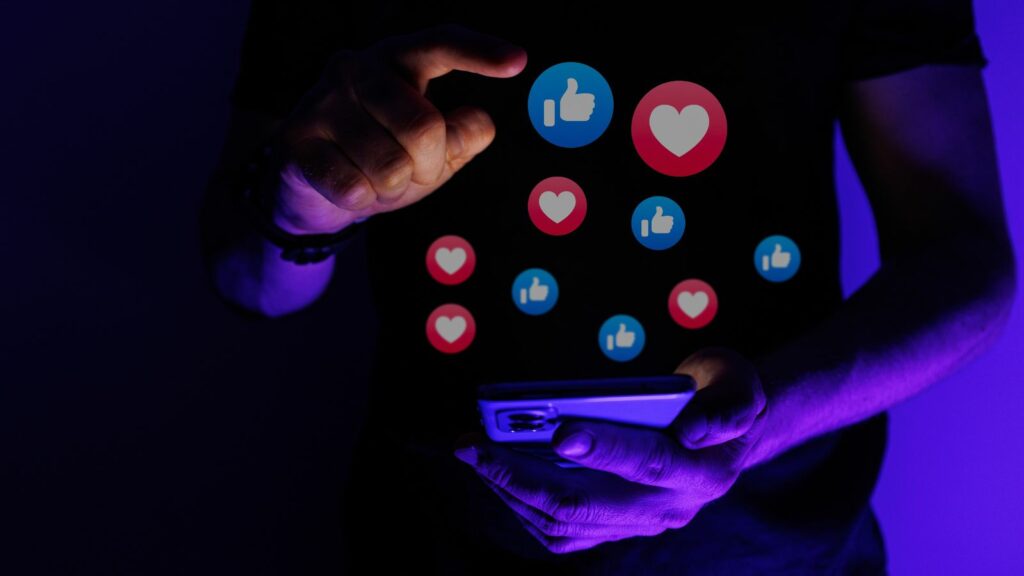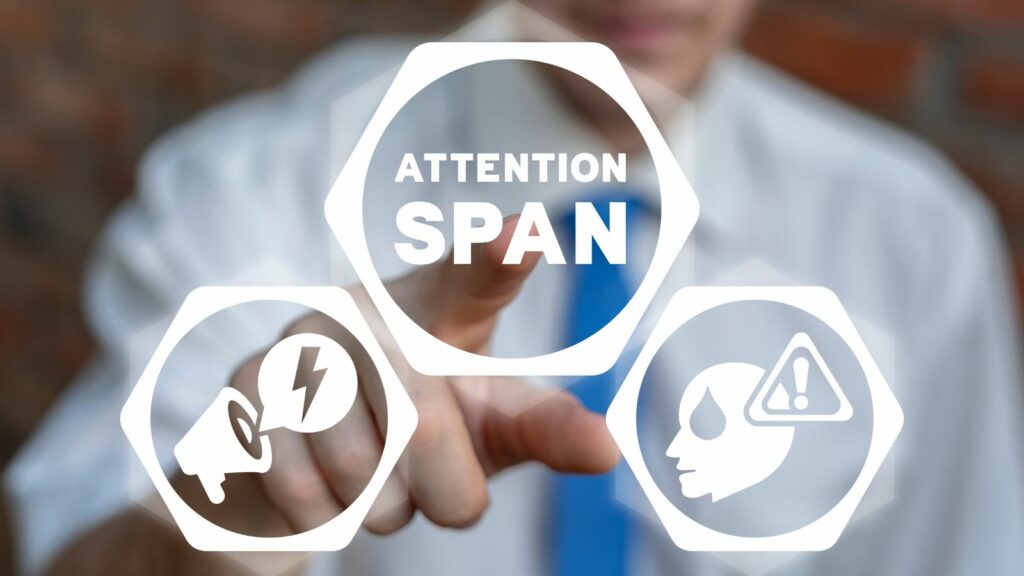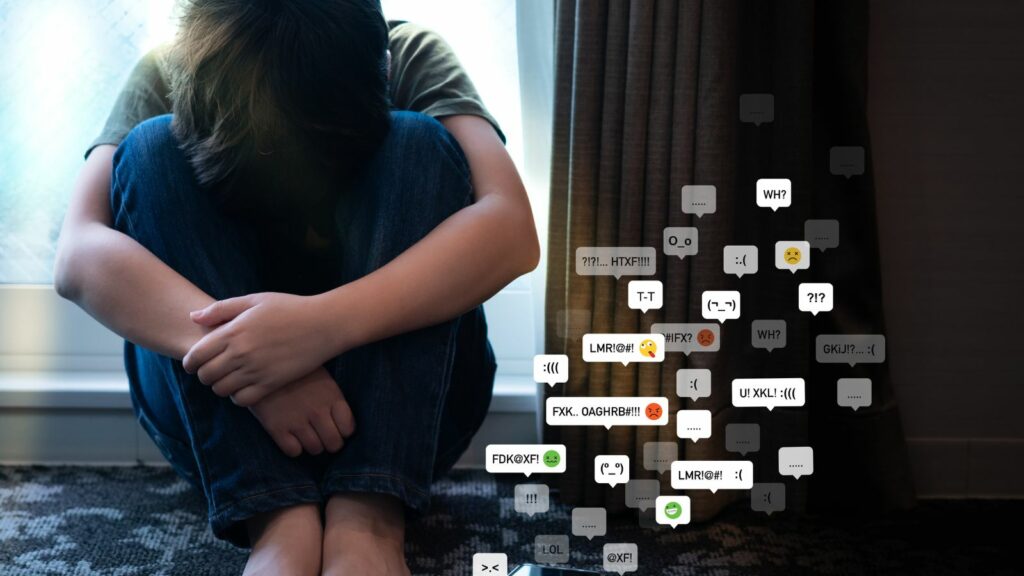While social media offers many positives for teens, such as entertainment and meeting like-minded people, it can also significantly impact mental health. From disruptive sleep patterns to fear of missing out, we take a look at 20 alarming realities about the negative effect of social media on adolescents:
Increased Anxiety and Depression

A number of studies link heavy social media use to higher rates of anxiety and depression among teens. The constant comparison to others and the pressure to present a “perfect” life online often leave teenagers feeling inadequate and unhappy.
Fear of Missing Out (FOMO)

Social media intensifies FOMO, making teens feel excluded when they see friends hanging out without them. This fear can lead to compulsive checking of platforms and can often lead to arguments with parents about what apps they can and can’t access.
Sleep Disruption

Many teens sacrifice sleep so they can stay online, scrolling through feeds late into the night and disrupting their established routine. Blue light from screens and the stimulating nature of social media can disrupt sleep patterns, leading to fatigue and mood disorders and eventually struggles at school.
Cyberbullying Epidemic

Unlike traditional bullying, cyberbullying follows teens home through their devices rather than problems being left at school until they die down the next day. Cyberbullying victims often experience anxiety, depression and even suicidal thoughts as a result of online harassment, often from people they know offline.
Unrealistic Beauty Standards

Social media’s emphasis on curated and filtered images promotes unattainable beauty standards. Teenagers, particularly girls, may develop body image issues and eating disorders from comparing themselves to influencers and peers.
Addictive Design

Platforms are intentionally designed to keep users hooked. Features like infinite scrolling, push notifications and algorithm-driven content feed addiction, leaving teens spending hours online at the expense of real-life relationships and responsibilities.
Reduced Face-to-Face Communication Skills

Spending more time communicating online than in person can stunt the development of social skills. Teens may struggle with reading body language and navigating real-world interactions when they are used to the fast-paced nature of online chat.
Normalization of Toxic Behaviors

Social media often glorifies harmful behaviors, such as substance abuse, self-harm or unhealthy relationships. When teens are exposed to traumatic content online, it can normalize problematic behaviours and even encourage some to follow suit.
The Pressure of Instant Feedback

Many teens feel immense pressure to gain likes, comments and shares on their social media accounts, in a bid to be as popular as their peers. The need to be validated can become overwhelming and leads to emotional highs and lows depending on reactions to their posts.
Echo Chambers and Polarization

Algorithms create echo chambers by showing users content that aligns with their existing beliefs. For teens, echo chambers can limit exposure to diverse perspectives and may foster harmful beliefs, such as racial stereotypes or extreme political opinions.
Diminished Attention Span

Social media’s fast-paced and bite-sized content reduces teens’ ability to focus on lengthy or complex tasks. This decline in attention span can affect academic performance and cognitive development both short and long-term.
Exposure to Harmful Content

Despite content moderation from social media bosses, teens can still encounter explicit, violent and disturbing material online. Exposure to violent content can cause short-term distress and potentially long lasting psychological effects.
Erosion of Privacy

Teens often share personal details online without understanding the long-term consequences. When children naively offer up their personal information it can lead to identity theft, exploitation and regret over past posts resurfacing in the future.
The Gamification of Popularity

Social media turns popularity into a numbers game, where likes, followers and views become measures of self-worth. Teens may become obsessed with increasing their metrics, prioritizing online image over authentic self-expression.
Increased Loneliness

Paradoxically, while social media connects people, it can also make teens feel more isolated. Comparing themselves to idealized representations of others’ lives can lead to feelings of inadequacy and loneliness, which happens less often in face to face relationships.
Risk of Sextortion and Exploitation

Teens who share intimate photos or engage in online relationships may fall victim to sextortion, where predators coerce them into providing more explicit material under threat of exposure.
Social Media’s Impact on Self-Esteem

Teens who derive their self-esteem from online interactions are more vulnerable to criticism and rejection. Negative comments or lack of engagement can profoundly impact their self-worth and lead to a spiral of self-doubt and lack of motivation.
The Spread of Misinformation

Social media is a breeding ground for misinformation, something that’s difficult for adults, nevermind teems. Teens may struggle to discern credible sources from false ones, leading to distorted perceptions of reality.
Challenges in Setting Boundaries

Social media is active 24/7 which makes it difficult for teens to unplug and set healthy boundaries. Constant notifications and updates can create a sense of obligation to stay connected, especially when it comes to bedtime routines.
Long-Term Mental Health Implications

The cumulative impact of these issues can result in long-term mental health challenges, such as chronic anxiety, depression or a distorted sense of self, which teens may carry into adulthood.
25 Countries Predicted to Become Economic Superpowers in the Next 20 Years

The strength of an economy plays a crucial role in various international policies about trade and relations. Certain factors determine the strength of an economy, including population growth, availability of resources, and development and advancement. Here are 25 countries predicted to become economic superpowers in the next 20 years
25 Countries Predicted to Become Economic Superpowers in the Next 20 Years
